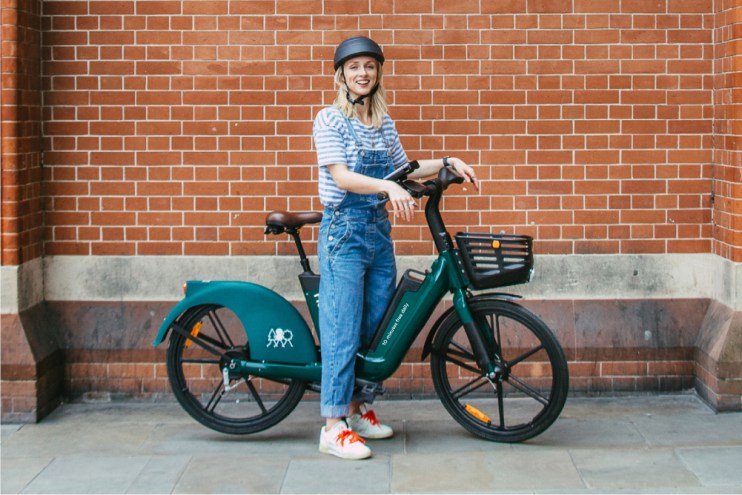The Spotify of micromobility: How a different business model can carve a niche in London’s e-bike market

As COP26 has drawn to a close, many were disappointed by world leaders lacking to focus on one of the biggest weapons we have to achieve net zero targets: bikes.
On Wednesday – COP26’s Transport Day – dozens of people in Glasgow rang their bicycle bells in protest against active travel solutions being a mere footnote on the COP26’s agenda.
By signing the declaration on zero emission cars and vans, countries agreed to recognise that “alongside the shift to zero emission vehicles, a sustainable future for road transport will require wider system transformation, including support for active travel, public and shared transport, as well as addressing the full value chain impacts from vehicle production, use and disposal.”
Like many other stakeholders, Cycling UK called omission of bikes a symbol of the “myopic technology solution focused attitude” of world leaders.
“While it’s positive to see active travel’s role briefly recognised as Transport Day ended, the world needs to wake up to the reality our behaviours need to change – especially for shorter journeys which can be easily walked or cycled,” Duncan Dollimore, the charity’s head of campaigns, said.
Despite the disappointing absence of cycling at the COP26 level, in the real world micromobility companies and solutions are blooming all around.
Earlier this week, e-scooter operator TIER joined forces with the London Borough of Islington to deploy 500 e-bikes around the council, while e-bike start-up Human Forest launched on Thursday a new payment package to support the gig economy’s environmental pledges.
The scheme – the first of its kind to be launched in London – will allow riders to buy bundles of minutes as and when they need them.
“We have put riders at the heart of our e-bike delivery scheme, creating an innovative and affordable model that will revolutionise the sustainable delivery sector for both riders and businesses,” said Human Forest’s chief executive Agustin Guilisasti.
Created two years ago after a trip to the Amazonas, Human Forest has managed to carve out a niche for itself within the already overcrowded market of e-bikes.
Through the adoption of a partnership-based advertising revenue model, the operator is able to give riders 10 minutes free, with no unlocking fees. For the rest of the day, customers pay 15p per riding minute.
“They call us the Spotify of mobility because after each ride you receive an in-app ad message from one of the companies we partner with,” the chief executive told City A.M.
“Our business model is different because partners – including Oddbox – pay us for that kind of advertising and enable us to give users that free premium.
“Our idea is to bring even more partners aboard to give even more free minutes.”
Because of its different business model, Human Forest has recently raised £2.3m in its pre-series A funding, bringing its valuation from £10.2m to £32m in the space of two years.
“We just launched and our goal is to achieve a positive EBITDA in the short term, within the next three months,” Guilisasti explained. “It’s a super aggressive plan but our business model and partners allow us to do it.”
As the company initially deployed 800 e-bikes around two London Boroughs –Islington and the City – future plans include covering a bigger part of London as well as expanding into the continent.
“We’re having a social impact in cities and that’s the reason why we want to reforest not only London but we’re planning to open more cities in Europe,” Guilisasti said.